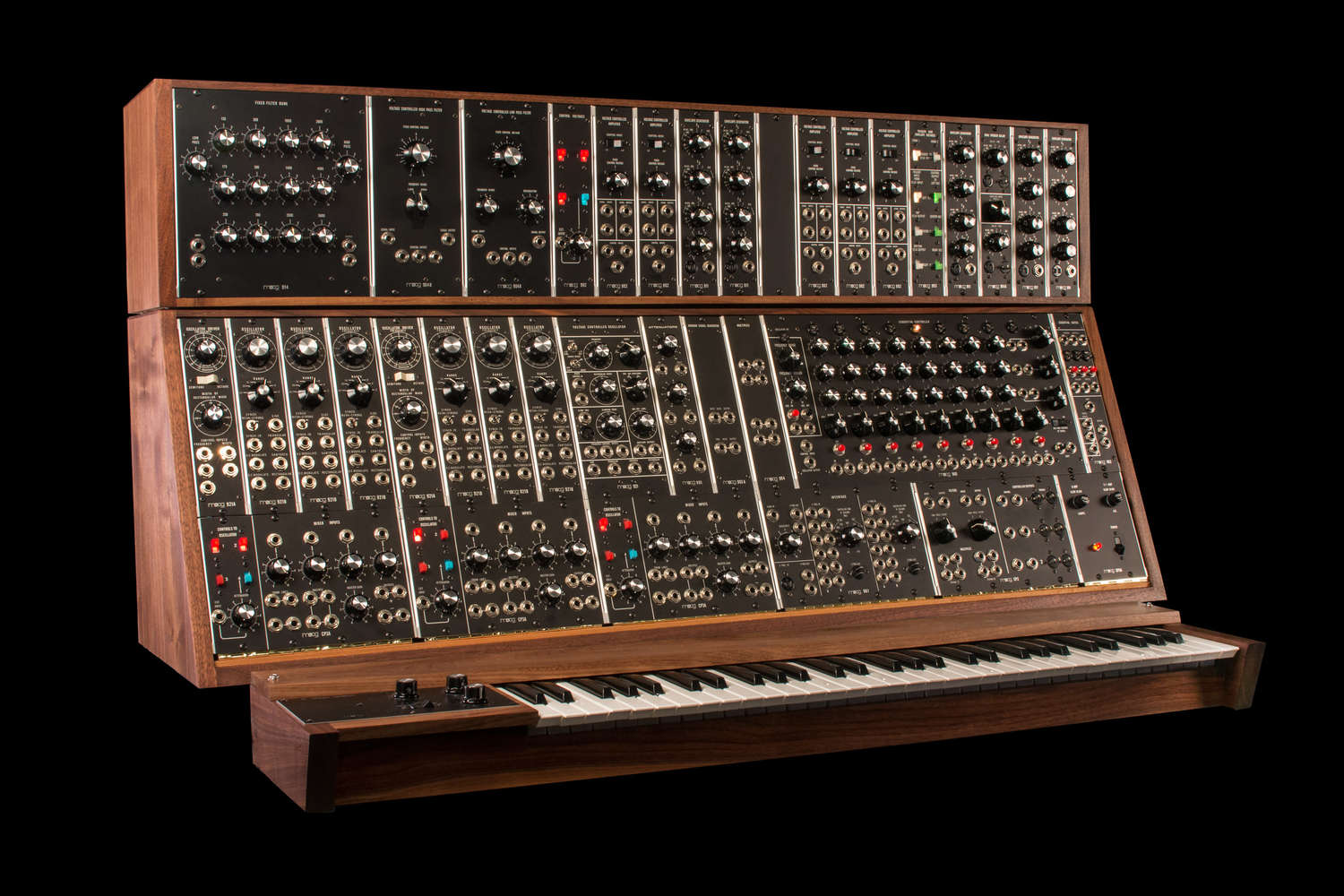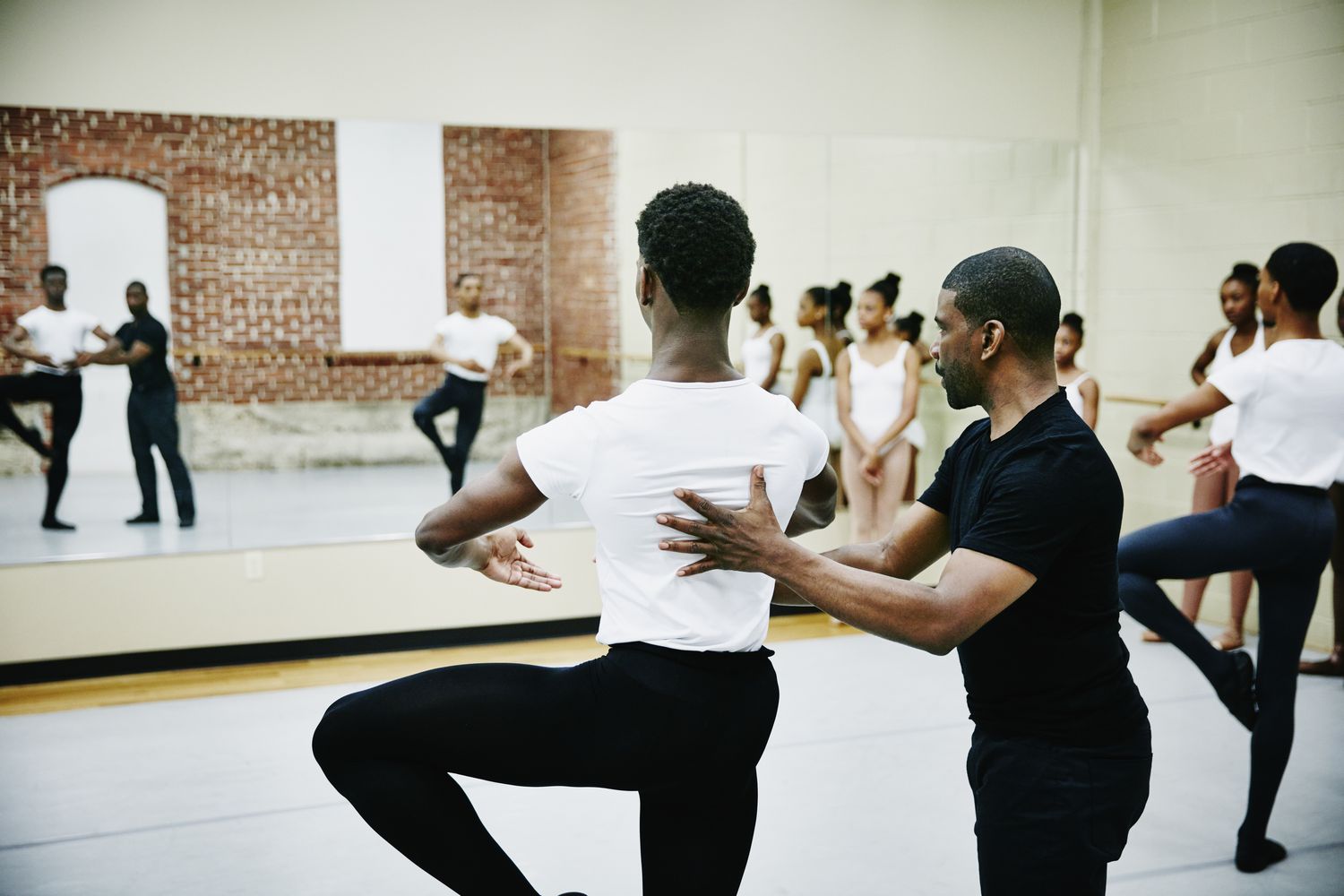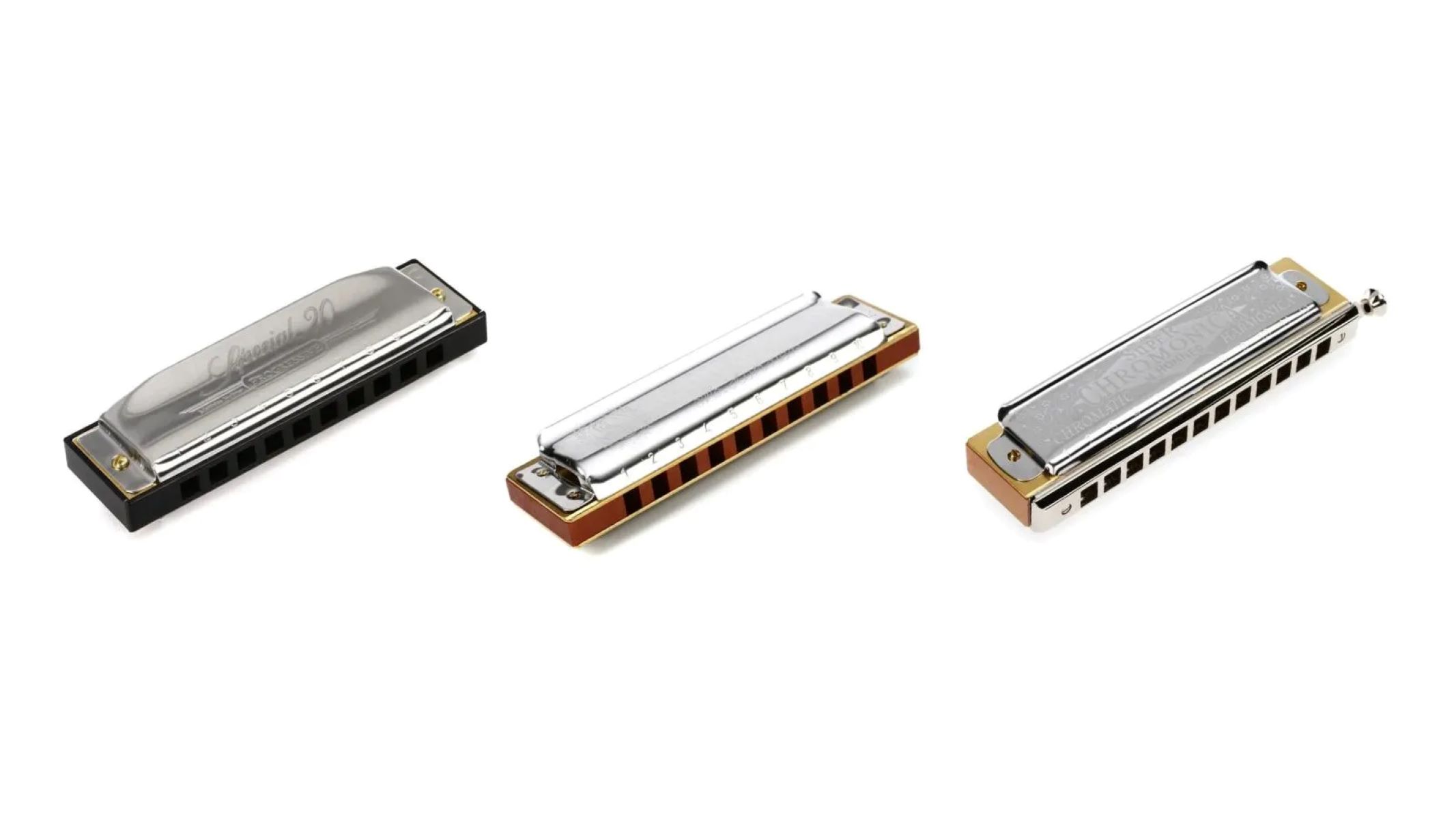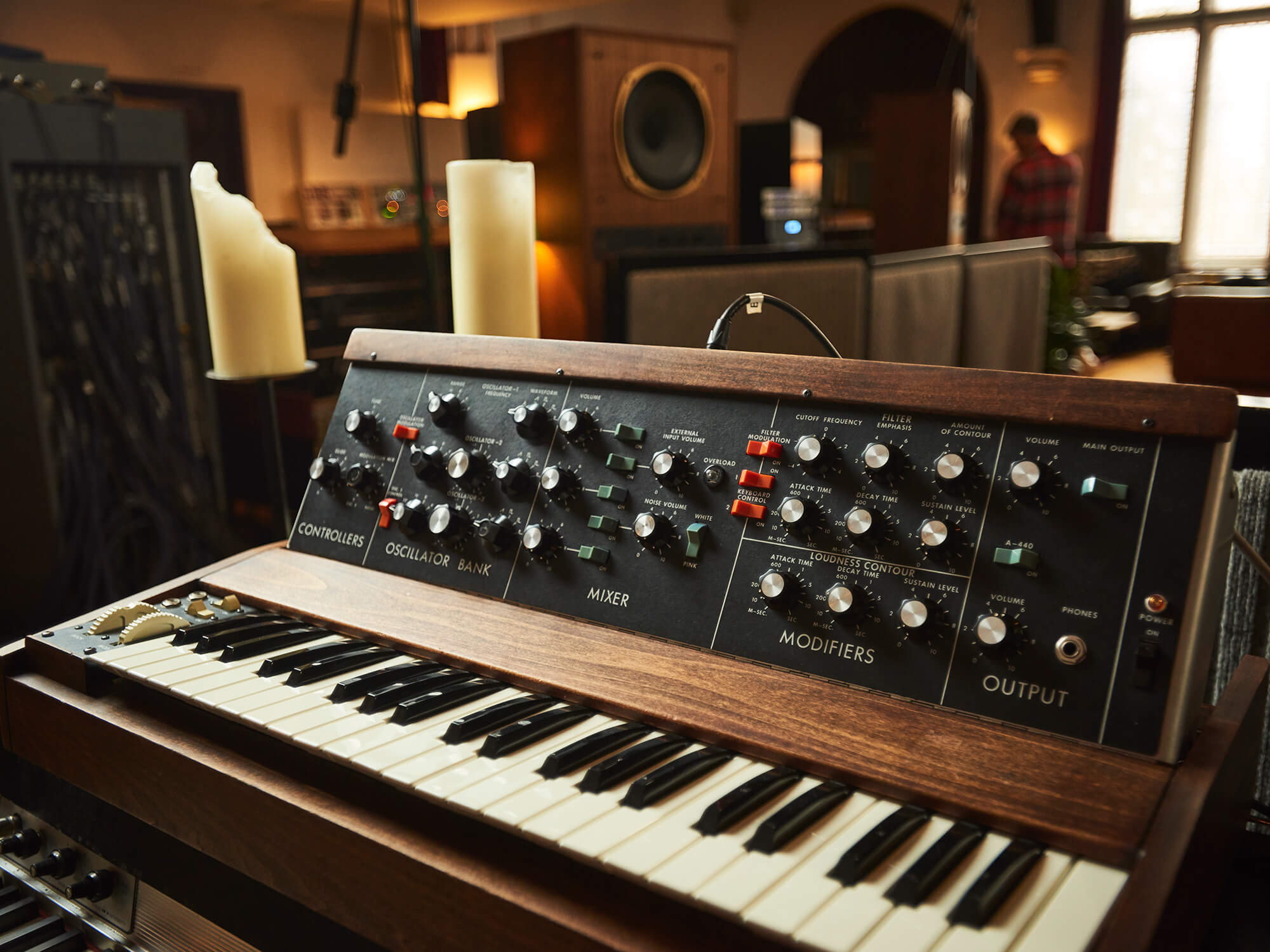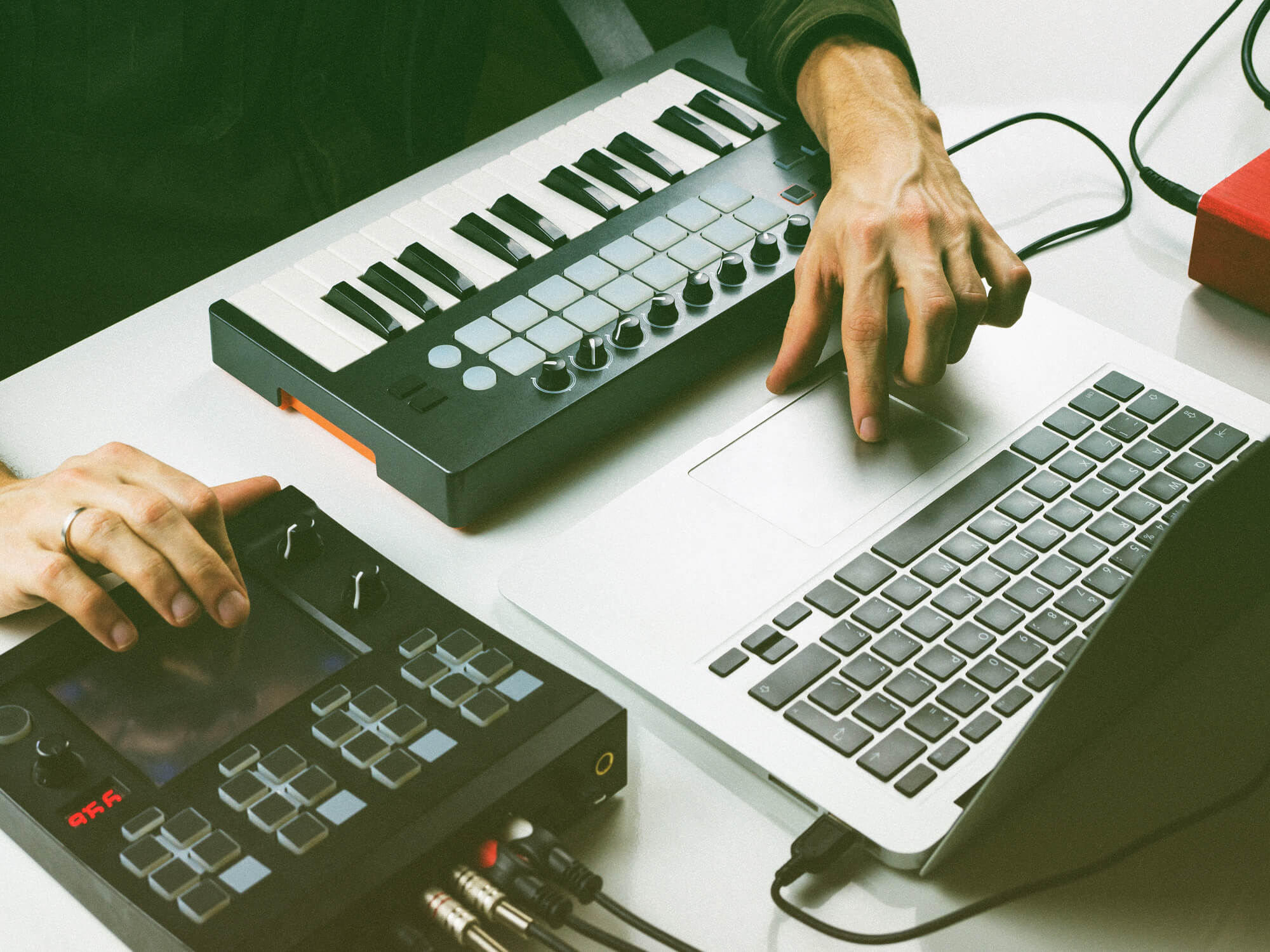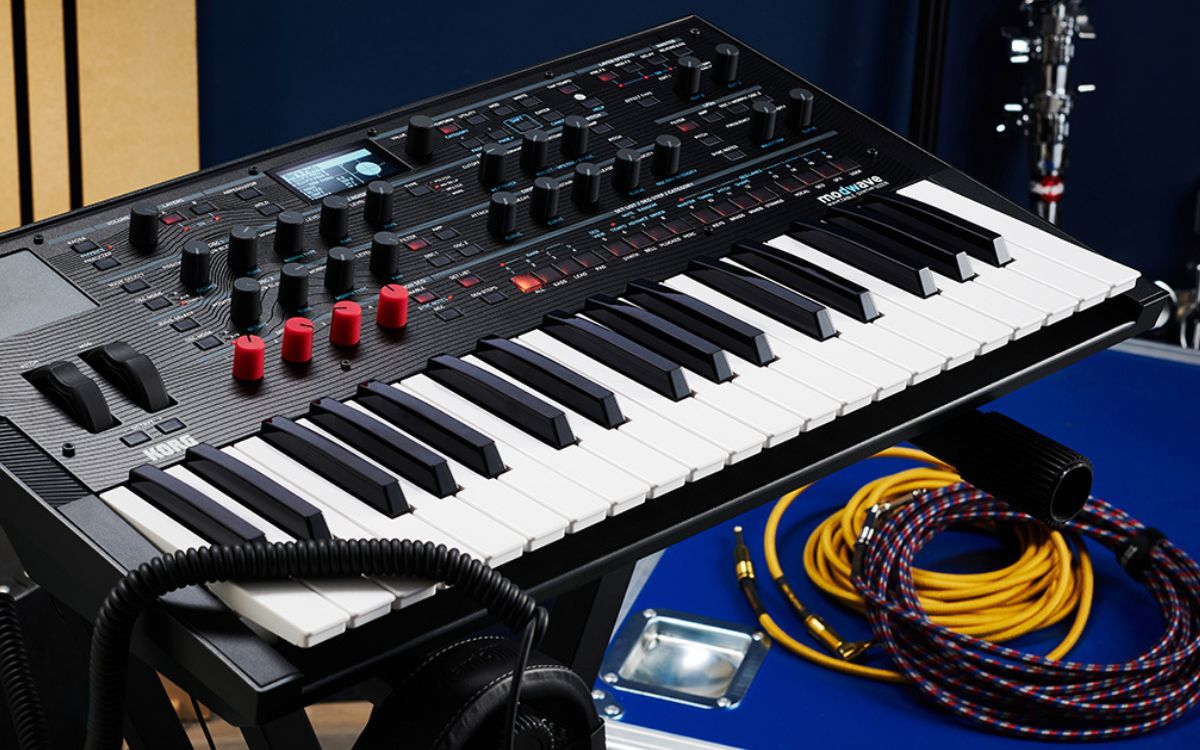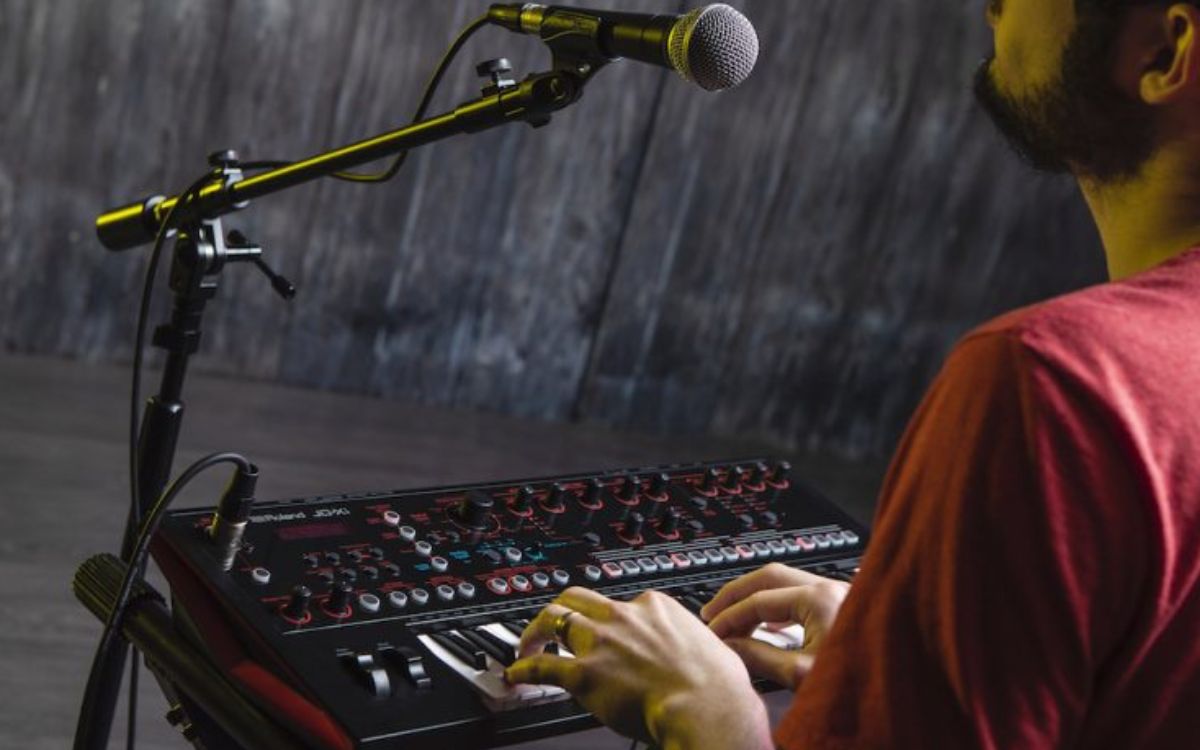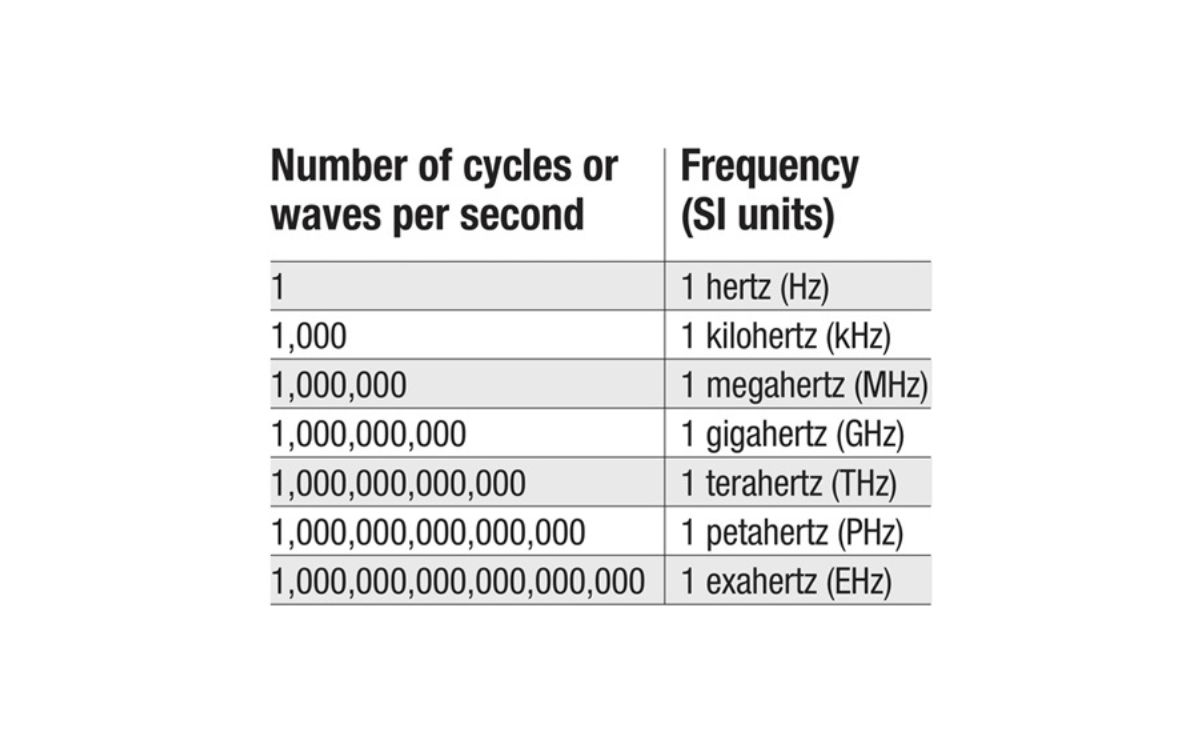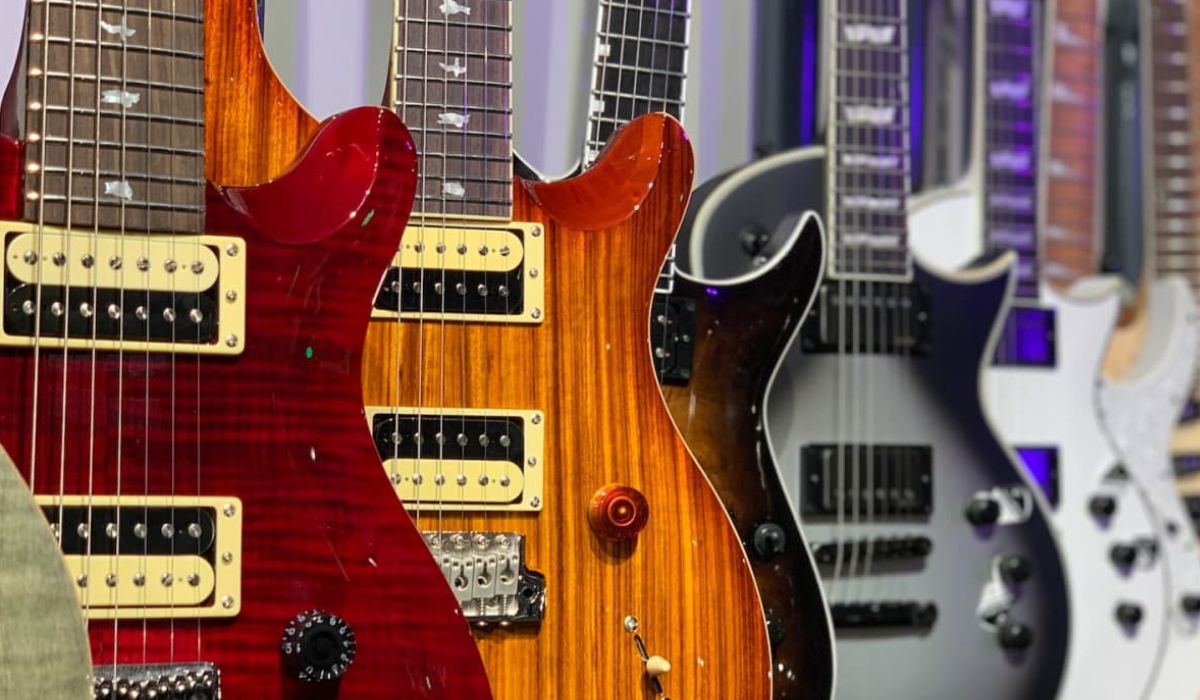Home>Instruments>Synthesizer>What Is A Good Synthesizer For A Beginner
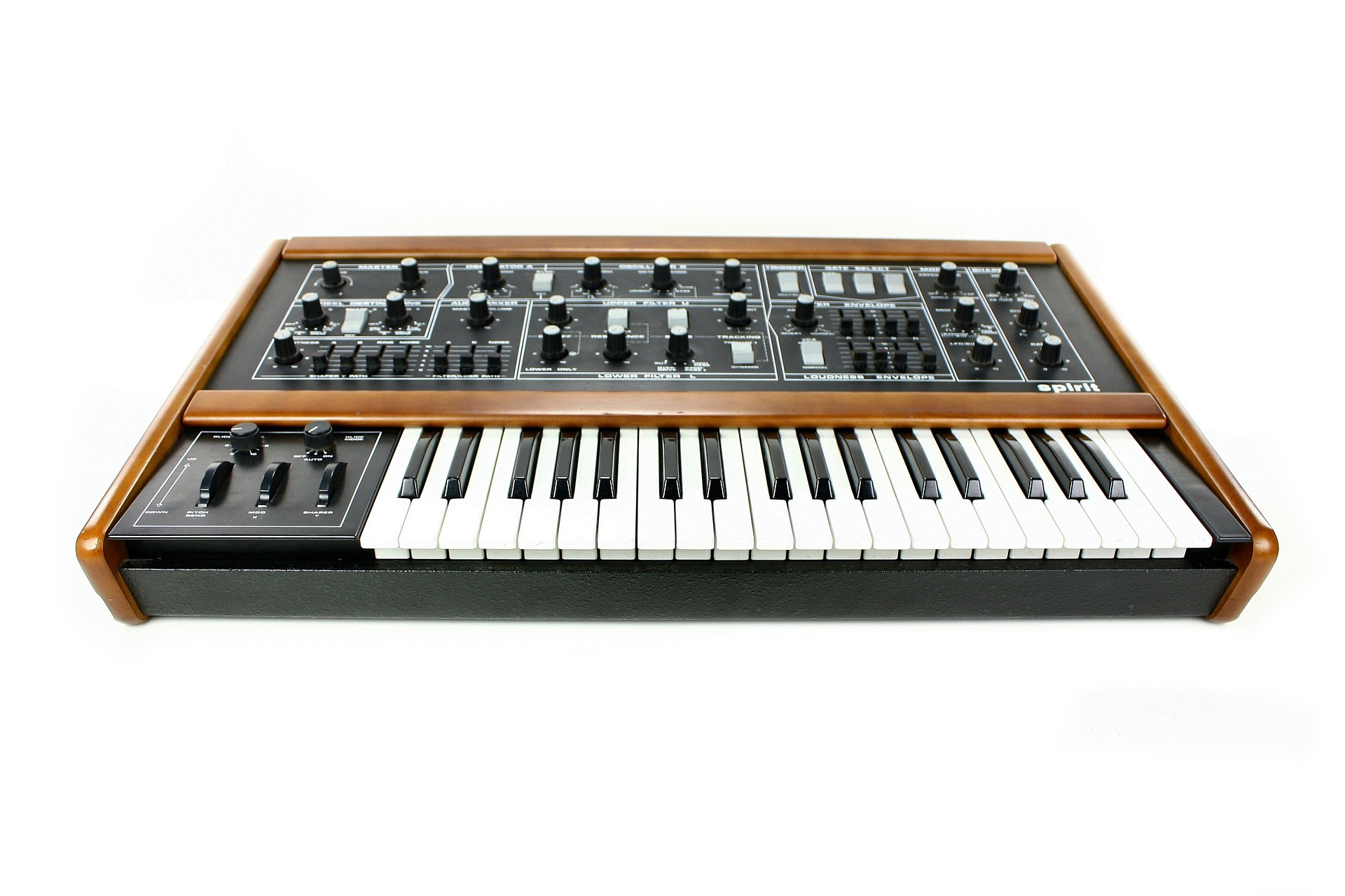

Synthesizer
What Is A Good Synthesizer For A Beginner
Modified: January 28, 2024
Looking for a good synthesizer for beginners? Discover the perfect synthesizer to kickstart your musical journey. Find out why a synthesizer is the ideal instrument for beginners.
(Many of the links in this article redirect to a specific reviewed product. Your purchase of these products through affiliate links helps to generate commission for AudioLover.com, at no extra cost. Learn more)
Table of Contents
- Introduction
- Factors to Consider When Choosing a Synthesizer
- Types of Synthesizers for Beginners
- Popular Synthesizer Brands for Beginners
- Budget-Friendly Synthesizers for Beginners
- Recommended Synthesizers for Different Music Genres
- Essential Features to Look for in a Beginner Synthesizer
- Tips for Getting Started with a New Synthesizer
- Conclusion
Introduction
Welcome to the world of synthesizers! Whether you’re a beginner exploring music production or a seasoned musician looking to expand your sound palette, choosing the right synthesizer is crucial. A synthesizer is an electronic musical instrument that generates sounds electronically. It offers endless possibilities for creating unique tones, textures, and effects, making it an essential tool in modern music production.
However, with so many options available in the market, finding the perfect synthesizer for a beginner can be overwhelming. That’s why in this article, we will guide you through the factors to consider, popular brands, budget-friendly options, and essential features to look for when choosing a synthesizer. Whether you’re into electronic, pop, rock, or any other genre, we’ve got you covered!
When diving into the world of synthesizers, it’s important to consider your musical goals, budget, and preferred music genres. Are you looking to explore electronic sounds for experimental music? Or do you want to recreate classic analog sounds for a retro vibe? By understanding your needs and preferences, you can make an informed decision and find a synthesizer that suits you best.
While experienced musicians may have their own preferences based on their knowledge of synthesizers, we’ll focus on providing recommendations and insights specifically tailored for beginners. Whether you have a musical background or not, a beginner-friendly synthesizer will help you understand the fundamentals of synthesis and enable you to start creating music right away.
Ready to embark on your synthesizer journey? Let’s dive in and explore the wonderful world of synthesizers for beginners!
Factors to Consider When Choosing a Synthesizer
When selecting a synthesizer as a beginner, there are several important factors to consider. Taking these factors into account will help ensure that you choose a synthesizer that suits your needs and enables you to learn and grow as a musician. Here are some key factors to keep in mind:
- Sound Quality: The sound quality of a synthesizer is of utmost importance. It should be able to produce a wide range of high-quality sounds that resonate with your musical preferences. Listen to demos or try out the synthesizer in person, if possible, to assess its sound quality.
- Keyboard: Consider the keyboard size and quality. Synthesizers come with various keyboard options, including full-sized keys, mini keys, or no keys at all (known as a “module” synthesizer). Choose a keyboard that feels comfortable and suits your playing style.
- Polyphony: Polyphony refers to the number of voices or notes a synthesizer can produce at the same time. For beginners, a polyphony of at least 16 voices is recommended to ensure that you have enough flexibility and versatility in your compositions.
- Sound Engine: Different synthesizers utilize different sound engines, such as analog, digital, or hybrid. Each sound engine has its own characteristics, so consider the type of sound you want to achieve and choose the appropriate sound engine accordingly.
- Controls and Interface: The control layout and interface should be user-friendly and intuitive. It should allow you to easily access and tweak the various parameters of the synthesizer without feeling overwhelmed. A cluttered or complex interface can hinder the learning process.
- Expandability: Consider whether the synthesizer allows for expansion or connection to external devices. This can include features like MIDI connectivity, USB ports, or the ability to connect to a computer or other modular synthesis systems.
- Budget: Of course, budget is an important consideration. Determine your budget range and explore options that offer the best value for your money. Remember, as a beginner, it is not necessary to splurge on the most expensive synthesizer.
By considering these factors, you can narrow down your choices and find a synthesizer that aligns with your musical goals, budget, and personal preferences. Next, let’s explore the different types of synthesizers that are ideal for beginners.
Types of Synthesizers for Beginners
When it comes to synthesizers, there are various types available, each offering a unique approach to sound synthesis. As a beginner, it’s helpful to familiarize yourself with the different types of synthesizers to understand which one is best suited for your musical journey. Here are some types of synthesizers commonly recommended for beginners:
- Analog Synthesizers: Analog synthesizers use analog circuitry to generate sounds. They are known for their warm and rich tones and are great for creating classic vintage sounds. Beginners who appreciate the raw and organic feel of analog synthesis may opt for an analog synthesizer.
- Digital Synthesizers: Digital synthesizers use digital signal processing to generate sounds. They offer a wide range of capabilities and can accurately recreate various instrument sounds. Digital synthesizers often come with a wealth of presets and effects, making them versatile for different music genres.
- Virtual Analog Synthesizers: Virtual analog synthesizers combine the best of both analog and digital worlds. They use digital technology to emulate the sound and behavior of analog synthesizers, providing the warmth of analog with the flexibility of digital synthesis. Virtual analog synthesizers are often more affordable and beginner-friendly compared to pure analog synthesizers.
- Workstation Synthesizers: Workstation synthesizers are all-in-one instruments that combine synthesizer capabilities with other features like built-in sequencers, drum machines, and samplers. They are ideal for beginners who want a comprehensive tool for music production and performance.
- Software Synthesizers: Software synthesizers, also known as virtual instruments, are computer-based synthesizers that run on digital audio workstations (DAWs). They offer the convenience of in-depth synthesis capabilities and a vast array of sounds, without the need for physical hardware. Software synthesizers are an affordable option for beginners and allow for easy experimentation.
Each type of synthesizer offers its own advantages and characteristics. Choosing the right type depends on your musical preferences, desired sound palette, and budget. It’s worth mentioning that there may be overlap between these types, as many synthesizers combine features and technologies from multiple categories. Now that you have an understanding of the different types of synthesizers, let’s explore some popular synthesizer brands that are beloved by beginners in the next section.
Popular Synthesizer Brands for Beginners
There are several renowned synthesizer brands that cater to beginners and offer high-quality instruments. These brands have established a strong reputation for their commitment to sound quality, ease of use, and affordability. Let’s take a closer look at some popular synthesizer brands that are highly recommended for beginners:
- Korg: Korg is a well-respected brand known for its diverse range of synthesizers. Their entry-level models, such as the Korg Volca series, provide an excellent starting point for beginners with their affordable price tags and compact designs. Korg synthesizers are highly regarded for their intuitive interfaces and user-friendly features.
- Arturia: Arturia is a French company that specializes in creating software and hardware synthesizers. Their MiniBrute and MicroBrute synthesizers are popular choices for beginners due to their analog sound engines and hands-on controls. Arturia synthesizers are known for their versatility and ability to produce a wide variety of sounds.
- Roland: Roland is a legendary name in the synth world, with a rich history of producing high-quality instruments. Their Boutique series, including the Roland JU-06A and SH-01A, combines cutting-edge technology with classic synthesizer designs. Roland synthesizers are praised for their authentic sound and durability.
- Novation: Novation has gained a strong following among beginners and electronic music producers. The Novation MiniNova and Bass Station II are popular choices, offering powerful sound engines and extensive parameter control. Novation synthesizers are known for their versatility and integration with popular DAWs.
- Behringer: Behringer is a brand that offers affordable synthesizers without compromising on quality. Their DeepMind and Neutron synthesizers have gained recognition for their deep sound-shaping capabilities. Behringer synthesizers are a great choice for beginners on a tight budget who still want a feature-rich synthesizer.
These are just a few examples of popular synthesizer brands for beginners, but there are many other reputable brands to explore as well. Each brand has its unique strengths and offerings, so consider factors like sound quality, interface, and price when making your decision. Keep in mind that personal preference plays a significant role, so it’s always a good idea to try out different synthesizers to find the one that resonates with you the most.
Now that you’re familiar with popular synthesizer brands, let’s move on to the next section where we’ll highlight some budget-friendly options for beginners.
Budget-Friendly Synthesizers for Beginners
Starting your journey in synthesizers doesn’t have to break the bank. There are several budget-friendly options available that offer great value for beginners. These synthesizers may have limited features compared to their higher-end counterparts, but they can still provide a solid foundation for learning and experimentation. Here are some budget-friendly synthesizers that are highly recommended for beginners:
- Korg Volca Series: The Korg Volca series, including Volca Keys, Volca Bass, and Volca Beats, offers affordable and compact synthesizers that are perfect for beginners. These portable units provide diverse sound capabilities and intuitive interfaces, making them ideal for learning the basics of synthesis.
- Behringer Neutron: The Behringer Neutron is a semi-modular analog synthesizer at an incredibly affordable price point. With its robust sound engine and patchable interface, it offers a hands-on learning experience for beginners interested in diving into modular synthesis.
- Arturia MicroBrute: The Arturia MicroBrute is a compact analog synthesizer renowned for its powerful sound and affordability. It features a 25-key keyboard, a versatile sound engine, and a hands-on control panel, making it an excellent choice for beginners looking for analog warmth.
- Novation MiniNova: The Novation MiniNova is a compact synthesizer that packs a punch with its sound engine and extensive parameter control. It offers a vast range of sounds and comes with a built-in vocoder, making it a versatile option for beginners interested in electronic music production.
- Teenage Engineering Pocket Operators: The Teenage Engineering Pocket Operators are a series of ultra-compact and affordable synthesizers that are designed for fun and creativity. They offer unique sound capabilities, built-in sequencers, and an array of effects, making them a popular choice for beginners on a budget.
These are just a few examples of budget-friendly synthesizers that provide a solid starting point for beginners. However, the market is constantly evolving, so it’s worth exploring other options as well. Don’t be afraid to read reviews, watch demos, and try out different synthesizers before making your decision.
Remember, while budget-friendly options may have some limitations, they can still provide an enjoyable and educational experience. As you progress and gain more experience, you can always upgrade to more advanced synthesizers that offer additional features and capabilities.
Now that we’ve covered budget-friendly options, let’s delve into the next section where we’ll recommend synthesizers suitable for different music genres.
Recommended Synthesizers for Different Music Genres
When it comes to synthesizers, different music genres often have distinctive sounds and requirements. Whether you’re into electronic, pop, rock, or any other genre, choosing a synthesizer that complements your preferred style can greatly enhance your creative process. Here are some recommended synthesizers for different music genres:
- Electronic Music: For electronic music production, versatile synthesizers with programmable features and powerful sound engines are essential. Popular options include the Novation Peak, Elektron Analog Four, and Moog Subsequent 37. These synthesizers offer a wide range of sound possibilities and are capable of creating everything from deep bass lines to soaring leads.
- Pop Music: Synthesizers that can produce bright and catchy sounds are often favored in pop music. The Yamaha Reface DX, Roland Juno-DS, and Korg microKORG are great choices for pop musicians. They offer a variety of preset sounds, easy customization options, and intuitive interfaces to bring your pop compositions to life.
- Retro and Synthwave: If you’re into retro and synthwave genres, synthesizers that can recreate iconic vintage sounds are a must. The Arturia MiniBrute 2, Korg MS-20 Mini, and Behringer DeepMind 12 are popular options for achieving those nostalgic tones and analog warmth associated with these genres.
- Rock and Alternative: In rock and alternative music, synthesizers that can produce powerful, gritty, and distorted sounds are often sought after. Synthesizers like the Moog Subsequent 25, Dave Smith Instruments Prophet Rev2, and Nord Lead 4 excel in delivering thick bass lines, screaming leads, and atmospheric pads that can cut through a rock mix.
- Ambient and Experimental: For ambient and experimental music, synthesizers with expansive soundscapes and modulation capabilities are highly valued. The Mutable Instruments Ambika, Elektron Digitone, and Korg Minilogue XD are excellent choices. These synthesizers offer a wide range of textures, evolving sounds, and complex modulation possibilities.
Of course, these recommendations are just starting points, and each musician’s preferences may vary. It’s important to experiment and find a synthesizer that resonates with your personal style and creative vision. Researching specific artists and the synthesizers they use within your preferred genre can also provide useful insights and inspiration.
Remember, the synthesizer is a tool to express your musical ideas, and there are no strict rules regarding which synthesizer must be used for a particular genre. It’s all about finding a sound that inspires you and helps you bring your musical vision to life.
Now that we’ve explored synthesizers and genres, let’s move on to the essential features you should look for in a beginner synthesizer.
Essential Features to Look for in a Beginner Synthesizer
When choosing a synthesizer as a beginner, certain features can greatly enhance your learning experience and provide a solid foundation for your musical journey. Here are some essential features to look for in a beginner synthesizer:
- Oscillators: Look for a synthesizer with multiple oscillators. Oscillators generate the basic waveforms that form the basis of your sound. Having multiple oscillators allows you to create more complex and rich sounds.
- Filters: Filters shape the timbre and character of the sound. Look for a synthesizer with different filter types (such as low-pass, high-pass, and band-pass) and the ability to modulate them. This allows for more expressive and dynamic sound shaping.
- Envelopes: Envelopes control how sounds evolve over time. Look for a synthesizer with ADSR (Attack, Decay, Sustain, Release) envelope controls. This will give you the ability to shape the amplitude and modulation of your sound, adding depth and expression to your compositions.
- LFOs: LFOs (Low-Frequency Oscillators) modulate parameters over time. They can add movement and modulation to your sound by affecting parameters like pitch, filter cutoff, or amplitude. Having at least one LFO in your synthesizer will provide more sonic versatility and creative potential.
- Modulation Matrix: A modulation matrix allows you to assign various parameters to be modulated by different sources or destinations. This feature opens up a world of possibilities for sound manipulation and experimentation. It’s especially valuable for creating complex and evolving sounds.
- Effects: Built-in effects like reverb, delay, chorus, and distortion can greatly enhance your sound. Look for a synthesizer that offers a variety of effects to add depth and character to your compositions. Having these effects built-in saves the hassle of needing to use external effects processors.
- Sequencer or Arpeggiator: A sequencer or arpeggiator is a valuable tool for composing and creating rhythmic patterns. Look for a synthesizer that includes a built-in sequencer or arpeggiator, as it can greatly enhance your creativity and allow you to create intricate and evolving musical sequences.
- Intuitive Interface: A user-friendly and intuitive interface is crucial for beginners. Look for a synthesizer that has clear labeling, well-placed controls, and an organized layout. This will allow you to easily understand and navigate the different functions and parameters of the synthesizer.
These features serve as a starting point to ensure that your beginner synthesizer provides versatility, creativity, and room for growth. Remember, it’s not about having the most advanced or complex synthesizer as a beginner. Focus on having a solid foundation of essential features that allow you to understand the basic principles of synthesis and create a wide range of sounds.
Now that you have an idea of what features to look for, let’s move on to the next section where we’ll provide some tips to help you get started with your new synthesizer.
Tips for Getting Started with a New Synthesizer
Congratulations on your new synthesizer! Now that you have a powerful musical tool at your disposal, it’s time to dive in and start creating music. Here are some helpful tips to get you started on your synthesizer journey:
- Read the Manual: As mundane as it may seem, reading the manual is crucial for understanding the features and capabilities of your synthesizer. It will provide valuable insights and instructions for operating your instrument effectively.
- Start with Presets: Presets can serve as a great starting point for understanding the different sounds your synthesizer can produce. Experiment with the presets, tweak the parameters, and get a feel for how different controls affect the sound.
- Learn the Basics of Synthesis: Familiarize yourself with the basic concepts of synthesis, such as oscillators, filters, envelopes, and modulation. Understanding these concepts will help you in building and shaping your own sounds from scratch.
- Experiment with Sound Design: Don’t be afraid to dive into sound design. Tweak the parameters, explore different waveforms, experiment with modulation, and create your own unique sounds. This hands-on approach will deepen your understanding of synthesis and spark creativity.
- Explore Synthesizer Communities and Resources: Join online forums, communities, and social media groups dedicated to synthesizers. Engage with fellow enthusiasts, ask questions, and share your experiences. There are also countless online tutorials, videos, and articles that can expand your knowledge and provide inspiration.
- Practice Regularly: Just like any musical instrument, regular practice is key to mastering synthesizers. Set aside dedicated time to explore and experiment with your synthesizer. The more you practice, the more comfortable and creative you’ll become.
- Experiment with Effects and Processing: Don’t forget to explore the effects and processing capabilities of your synthesizer. Experiment with built-in effects or connect your synthesizer to external effects pedals or processors. This can add a new dimension to your sound and unleash your creativity even further.
- Record and Experiment with Sequencing: Take advantage of the built-in sequencer or connect your synthesizer to a computer-based DAW. Recording and sequencing your ideas will allow you to layer sounds, create complex arrangements, and build complete compositions.
- Collaborate and Share: Collaborate with other musicians, share your music with friends and online communities, and seek feedback. This will not only help you grow as a musician but also provide fresh perspectives and ideas for your synthesizer journey.
Remember, learning to play and create music with a synthesizer is a journey. Embrace the process and enjoy the discovery of new sounds and possibilities. With time, patience, and dedication, you’ll develop your own unique style and make remarkable music. So, let the synthesizer be your creative outlet and have fun pushing the boundaries of sound!
Now that you have these tips in mind, you’re well-equipped to embark on your synthesizer adventure. Harness your creativity, explore the potential of your instrument, and let your music soar to new heights. Happy synthesizing!
Conclusion
Choosing a synthesizer as a beginner can be an exciting and fulfilling journey. By considering factors such as sound quality, keyboard options, polyphony, and budget, you can find a synthesizer that suits your needs and musical aspirations. Whether you’re a fan of analog warmth, digital versatility, or a combination of both, there is a wide range of synthesizers available to cater to your preferences.
Popular synthesizer brands like Korg, Arturia, Roland, Novation, and Behringer offer excellent options for beginners. These brands are known for their commitment to sound quality, ease of use, and affordability. Additionally, budget-friendly synthesizers like those from the Korg Volca series, Behringer Neutron, and Arturia MicroBrute provide great value for beginners without compromising on essential features.
When it comes to synthesizers, different music genres demand different sounds and capabilities. Whether you’re into electronic, pop, rock, or ambient music, there are synthesizer options that will suit your preferred genre. Consider the recommended synthesizers for each genre as a starting point and explore the possibilities they offer.
When getting started with your new synthesizer, don’t forget to read the manual, experiment with presets, delve into sound design, and join synthesizer communities. Regular practice and exploration will help you master your instrument and unleash your creativity. Don’t be afraid to experiment, collaborate, and share your music with others.
The journey of learning and creating music with a synthesizer is an ongoing process. Embrace the adventure, enjoy the discovery of new sounds, and let your imagination soar. With time, dedication, and an open mind, you’ll develop your own unique style and create remarkable music.
Now that you’re equipped with the knowledge and tips provided in this article, it’s time to jump into the world of synthesizers and start making music. So, what are you waiting for? Let the synthesizer be your guide to sonic exploration and creative expression. Happy synthesizing!

